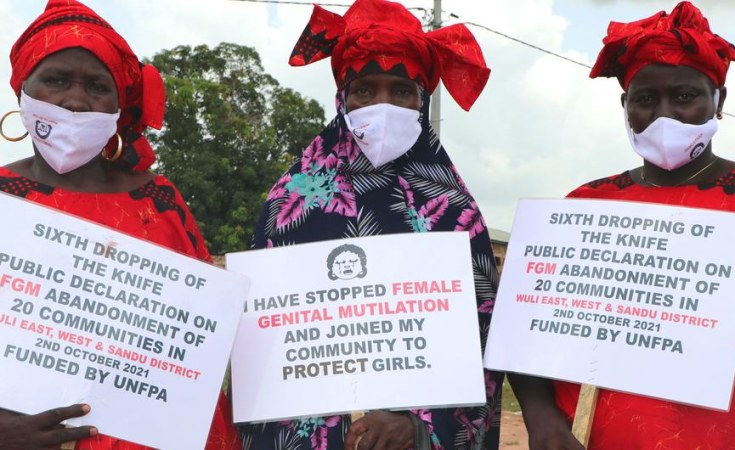Monrovia — A prominent campaigner against female genital mutilation urged Gambian MPs not to reverse the 2015 ban that the country's former president Yahya Jammeh signed into law. Jaha Dukureh, founder of the women's rights group Safe Hands For Girls in Gambia said genital cutting is of "no medical value" to women, and is a human rights violation.
Dukureh, a former UN Goodwill Ambassador for women, was one of several leading Gambian activists presenting during a parliamentary committee hearing on Thursday, May 23.
Debates on the cutting issue were re-ignited after the submission of the Women's Amendment Bill 2024 proposing to remove the ban. The Bill sponsors argue that the law in its present form violates the country's cultural norms and religious beliefs. Gambians are predominantly Muslims. On this, Dukureh said: "We are advocating for equity, which is what Allah tells us".
The National Assembly is scheduled to decide on the issue during its June session.
Regarding cultural norms, the panelists argued that culture can be harmful and obsolete. And, despite the widespread notion in Gambia that cutting would help prevent girls from getting pregnant before marriage, that has not been the case.
The former goodwill ambassador said women and girls are the ones affected and should therefore have a greater say in the ongoing conversation, while understanding the sensitive nature of the subject. "It is not for a guy to tell me I am wrong (on this issue)", she said, in an apparent reference to the country's male-dominated parliament.
Rights groups warned that reversing the law would undermine the progress made in ending the practice. In April Human Rights Watch said that the proposed law would not only legitimize FGM in Gambia, but could also "encourage similar measures elsewhere in the region".


